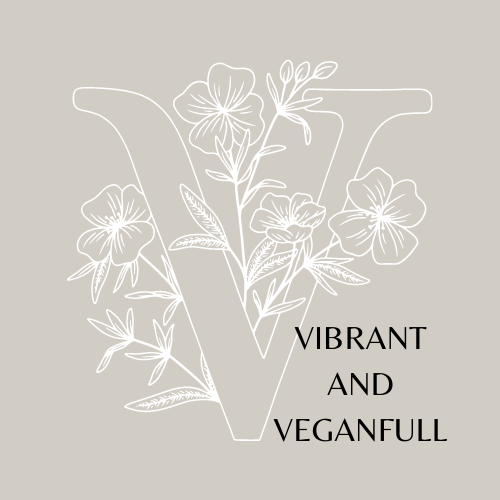Everyday Kale Salad with Brussels Sprouts & Sherry Vinaigrette
- Jamie Langes

- Jun 19, 2021
- 3 min read
I don't know about you, but a simple salad doesn't really do it for me. Simple has been often equated to boring. Like the quintessential "garden salad" comprised of wilted iceberg lettuce, a sprinkle of dried matchstick carrot, 3 wrinkled cherry tomatoes, 4 slices of water burst red onion all drowning in a congealing Italian dressing. Oh, no, no, no. That is (simple) salad death, and in my theory, the main source of a "salad sucks" cultural opinion that often surrounds me.
Okay yes, salads are simple - simply stellar, that is! When done right, you can't beat the ease and convenience of salad. No oven, no grill, no fuss; no experience needed! Just chop, stir / mix, blitz and eat. A good salad takes a little effort and simple fresh ingredients, but is worth expending that effort to get "wow!" A taste bud tango of flavors, a complex melding of textures, and a feast of colors for your eyes. Not many dishes can compare to the range and abilities of salad.

I titled this recipe "everyday" because it is literally a salad that you can conceivably make every day of every season; all.year.long. We have also enjoyed this salad as a side for breakfast (yep, breakfast), brunch, lunch, dinner, and an "in between" meal. So, you can also use this salad all.day.long. Nice, huh? I think you will reach for this easy and flavorful option time and time again.
Sustainability Spotlight: Kale is ranked #3 on the Environmental Working Group (EWG)'s "Dirty Dozen" list of contaminated fruits and vegetables. The rank has held steady for the last 3 years. The list compiles data from the United States Department of Agriculture (USDA) and Food & Drug Administration (FDA) for the number of pesticides, herbicides or insecticides and volume (amount) of each. According to a Time.com article, 92% of conventionally grown (non-organic) kale had pesticide residue.
Americans first became obsessed with kale in the early 20-teens (almost 10 years ago). The vegetable became popular as a health-consciousness revolution gained momentum in the US spurned by celebrities and reality shows alike promoting health and fitness in a country with the highest obesity rates on the globe. To meet demand, kale production exploded; mostly on the conventional farmland crisscrossing the nation. Due to the popularity and methods of growth (conventional), kale became both a health moniker as one of the most nutrient dense foods on the planet, and also one of the most dangerous for your health from a contaminant perspective.
As consumers, kale is a great example to prove that we have the power to "demand" products from companies and corporations as evidenced in the explosive growth of the production of this vegetable. However, we also need to frame that demand in positive sustainable ways with our selection of organic (where possible) to remove the load of pesticides on kale. Because of kale's listing on the EWG's list of "Dirty Dozen," consumers are aware of the effects of conventional farming on this "hot" commodity and can understand the effects of selecting organic.
The more know about our food, the more we can consciously select more positive products. In this case, organic over conventional in the aggregate. Remember, the more we, as consumers use our selection of products for sustainability, the more we will move the availability of organic. This will in turn drive premiums down on organic produce (the more they can sell combined with more entrants will lower the margins and price). In this digital and virtual society, we have the access to and power through information available to us to select the more healthy options for ourselves and the planet. So, for this salad (and any other kale recipes), try and choose organic and you will be a part of the power of change on sustainability.
Ingredients:
5 leaves of kale (de-ribbed & finely chopped)
2 handfuls of baby spinach (finely chopped)
8 large brussels sprouts (trimmed & thinly sliced)
3 ribs of celery (diced)
8 pitted dates (diced)
1 can Lindsay green olives (drained & chopped)
1 pint cherry tomatoes (quartered)
3 tbsp organic hemp seeds
1/4 cup roasted unsalted sunflower seeds
Sherry Vinaigrette:
2-3 garlic cloves (chopped)
1/4 cup olive oil
2 tbsp sherry vinegar
3 tbsp filtered water
1 tsp salt
3/4 tsp agave syrup
1 tsp stone ground mustard
black pepper (to taste)
pinch of red pepper flakes
pinch of dried oregano
Directions:
Combine all salad ingredients (kale through sunflower seeds) in an oversized salad bowl
Blitz all vinaigrette ingredients in a personal blender until slightly foamy and emulsified
Pour vinaigrette over salad and toss thoroughly to coat.
Serve generous portions of the salad with fresh fruit (we did strawberries; still in season but waning).
I hope you enjoy this recipe - I'd love to hear from you.
With love & hope for a better future for all of us - Jamie




Comments